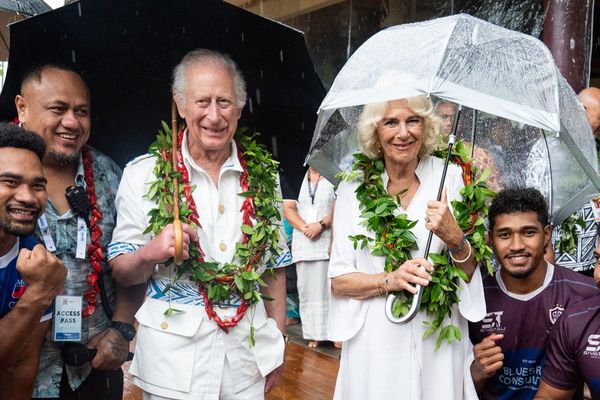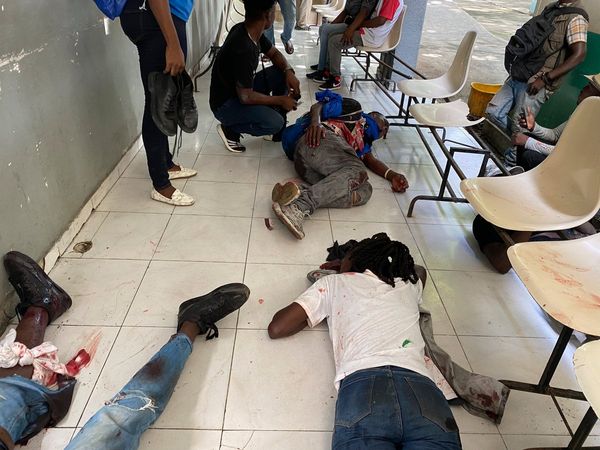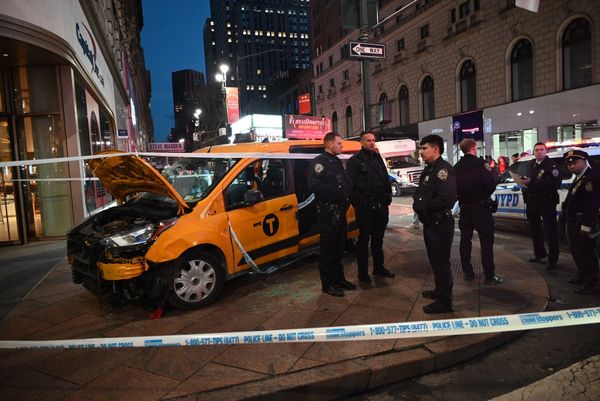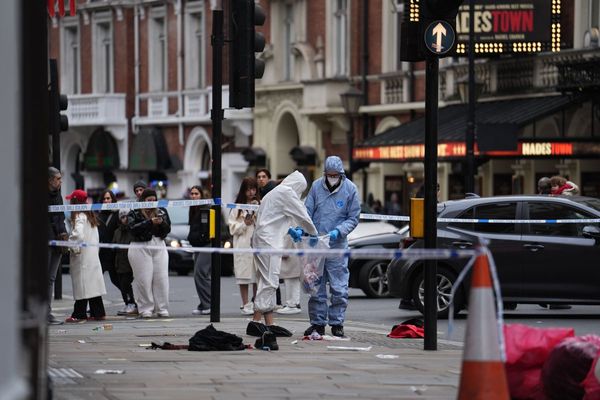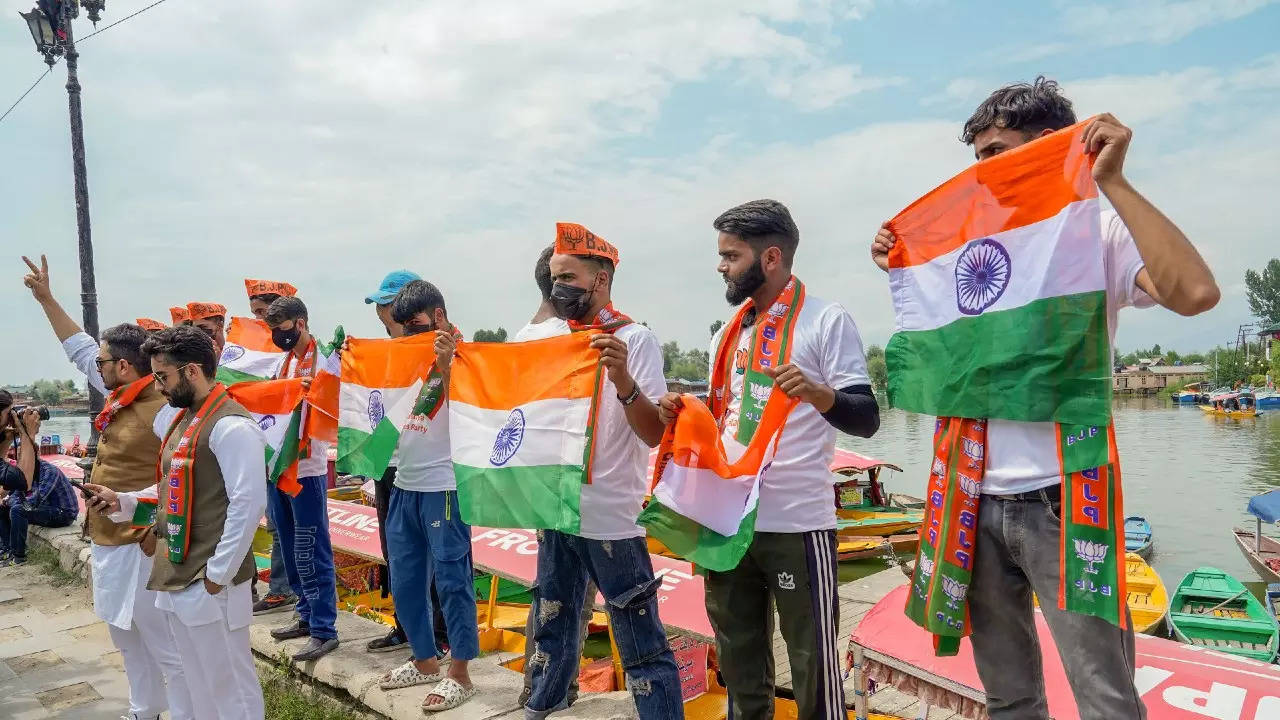
NEW DELHI: BJP leader and head of the party IT Cell Amit Malviya on Saturday said the nullification of Articles 370 and 35A of the Constitution four years ago has transformed Jammu and Kashmir, and it has had a “profound impact” on the lives of the people in the region.
Malviya, who is also the BJP’s co-in-charge of West Bengal, posted as many as 10 tweets on the fourth anniversary of the nullification of Articles 370 and 35 A to buttress his point.
He said, “On August 5, 2019, a historic moment unfolded in India as the Government, led by Prime Minister Narendra Modi, took a decisive step for India’s unity by abrogating Article 370 and Article 35A from Jammu & Kashmir and Ladakh. This monumental decision set in motion a series of transformative changes that have had a profound impact on the region, its people, and its potential for growth.”
Malviya said the abrogation of Article 370 and 35A was aimed at fostering greater integration, development, and progress in Jammu and Kashmir. This move removed the special status that had limited the region's full participation in the Indian Union and opened up new avenues for its citizens to realise their true potential. The Modi government's commitment to 'Sabka Saath, Sabka Vikas' has become a reality on the ground, transforming lives and shaping the destiny of over 1.3 crore citizens.
He said the government's focus on infrastructure development has been evident through numerous projects launched in the region. This has not only improved connectivity but has also made Jammu and Kashmir a preferred destination for tourists. With a staggering 1.27 crore tourists arriving in the region till June 2023, there is a renewed sense of hope and prosperity. “For the first time since Independence, more than one lakh people, who migrated from West Pakistan to Jammu in 1947, are being granted full citizenship and domicile rights, including ownership rights for property, the right to vote, and eligibility for government jobs,” he said, adding hashtag ‘#370OutVikasIn’.
He said four years ago, when home minister Amit Shah stood up in Parliament to present a Bill that would abrogate Art370 and reorganise the state of J&K, it was a moment of disbelief and surprise. Four years later, nothing seems more logical and rational.
Malviya enlisted a number of ‘firsts’ of J&K after abrogation of Article 370. They include Diwali was celebrated at Sharda Temple after 75 years; in July 2023, Muharram processions returned to Srinagar's streets after 34 Years; in September 2022, cinema hall reopened after more than 30 years; and Kashmiri Pandits celebrated 'Navreh' in their homeland after 32 years.
He noted that due to the special status, several archaic and discriminatory laws were applicable in the region. This impacted the region’s women and the most disadvantaged sections of society. Post revocation of Article 370, a new era of inclusion is being witnessed in J&K. “Abrogation of Article 370 and Article 35A has ended an era of discrimination,” he said and enlisted a few instances.
– Anti-Safai Karamcharis, anti-migrants and anti-West Pakistan Refugees: In other parts of the country, refugees from West Pakistan went on to become prime minister, while in J&K, even basic rights, such as voting, were denied. These groups were denied property rights and public employment opportunities despite decades of residency.
– Refugees from West Pakistan, PoJK, Gorkhas and Valmikis were declared as domiciles of J&K and have been given the domicile certificates since 2020; 5.5 lakh per family was offered as compensation to those who had migrated not only from West Pakistan but also from PoJK.
– Anti women: Earlier, women marrying outside the state or with non-permanent residents could not inherit property. Now, women of Jammu & Kashmir and Ladakh have the freedom to marry a non-residents without putting in jeopardy the rights of their children over their property.
– The removal of Article 35A and introduction of new domicile law: According to the new definition of domicile, persons residing in Jammu & Kashmir for 15 years or more, or someone who has studied for a period of seven years and appeared in class X/XII from the state can be issued a domicile certificate. This has ended decades of discrimination.
– Extensive benefits have been provided to various marginalised groups in J&K. Financial assistance of Rs 5.5 lakh to families of displaced persons of PoJK 1947, displaced persons of PoJK (residing outside J&K), displaced persons of Chhamb (1965 and 1971), and West Pakistan refugees. This has benefitted more than 45,000 families.
The BJP leader further noted that the security situation in Jammu & Kashmir has improved significantly, post abrogation of Article 370, due to various steps taken by the government. These include a robust security and intelligence grid, proactive operations against terrorists, intensified night patrolling and checking at Nakas, security arrangements through appropriate deployment and a high level of alertness maintained by the security forces.
He put down some numbers to prove his point.
– Decline in terror Incidents
2018: 417
2023: 26
– Stone-pelting incidents
2018: 1,767
2023: 0
– Incidents of organised bandh/ hartals
2018: 52
2023: 0
– Drop in terrorist recruitment
2018: 199
2023: 12
– Instances of cross-border infiltration
2019: 141
2023: 0
Malviya said several progressive national laws are now applicable to J&K, post abrogation of Article 370. They include:
– All 890 central laws were made applicable to J&K. While 205 state laws were repealed, 130 state laws were modified to align with the Constitution of India.
– Instead of its own penal code – Ranbir penal code – J&K now has the Indian Penal Code (IPC).
– Major governance laws such as RTE Act, RTI Act, AADHAR Act, were not applicable to J&K earlier.
– Rights of women denied: Progressive national laws such as Dowry Prohibition Act, Protection of Women from Domestic Violence Act etc have been made applicable to J&K.
Malviya said abrogation of Article 370 led to extension of reservation benefits to the socially marginalised. They include:
– Post 2019, reservation has been granted to Pahari-speaking people and EWS category.
– In October 2022, Pahari speakers were included within ST category.
– Reservation benefits extended to residents of areas around international border.
– A commission has been established for examining reservation for Socially and Economically Backward Communities.
– Delimitation is being undertaken to give voice to the underrepresented: The Delimitation Commission was formed in March 2020 which led to the issuance of the Delimitation Notification on May 5, 2022.
– The Delimitation exercise has reduced the historical disparity between Jammu (from 37 to 43 seats) and Kashmir (from 46 to 47 seats) region.
– It has led to introduction of ST reservation for the first time.
– The delimitation has also provided for nominated member seats for Kashmiri migrants.
– Recognition for languages: Earlier, J&K had only two official languages – Urdu and English.
– The J&K Official Languages Bill, 2020 was passed to add three additional official languages – Hindi, Kashmiri and Dogri.
Malviya said strengthening grassroots democracy in Jammu & Kashmir, post-abrogation of Article 370, has meant establishment of a three-tier panchayati raj system, which has led to transformative change in local governance.
– In October 2019, elections for Block Development Councils (BDCs) were held for the very first time in the history of J&K, with a historic turnout of 98.3%.
– The amendment to the J&K Panchayati Raj Act in October 2020 enabled the creation of District Development Councils (DDCs), the final tier of the system.
– Elections were promptly held for these councils, along with bye-elections for panchs and sarpanchs, resulting in 35,000 elected representatives. These grassroots leaders now have the power to shape the future of their villages, tehsils and districts.
– Substantial turnout in DDC elections held in November-December 2020.
– Local government reforms for direct funding of panchayats.
The BJP leader pointed out that one of the consequences of abrogation of Article 370 was ensuring regional equity in development: Ladakh, which was made a Union Territory (UT), benefited in a big way.
He gave a few points to show how Ladakh has progressed since 2019.
– Ayushman Bharat provided healthcare to 1.3 lakh beneficiaries, disbursing Rs 11.5 crore.
– Jal Jeevan Mission installed 33,495 household tap connections for improved water access.
– PMAY (rural and urban) completed 1429 houses and 666 dwelling units, ensuring decent housing.
– Bharatiya Jan Aushadhi Pariyojana offered affordable medicines worth Rs 106.5 crore.
– PM Jan Dhan Yojana opened 21,908 bank accounts, with 55% for women.
– PM KISAN allocated ₹36 crore to support farmers.
– PM Mudra Yojana sanctioned ₹960 crore for entrepreneurs.
Talking in terms of allocation of funds, he said:
– During 2021-22, Rs 34,704 crore was allocated to the Union Territory of Jammu and Kashmir as grants-in-aid and Rs 5,958 crore has been allocated to UT of Ladakh.
– Similarly, during 2022-23, Rs 35,581 crore has been allocated to Jammu and Kashmir as grants-in-aid and Rs 5,958 crore has been allocated to Ladakh.
Malviya further said, “Abrogation of Article 370 opened up several new opportunities for Youth in Naya Kashmir.”
Discussing recruitment and employment initiatives, he mentioned the following points:
– Largest ever recruitment drive initiated by the Modi government.
– Abolition of interviews for recruitment to various positions.
– Accelerated Recruitment Committee constituted for various posts.
– Total of 29,813 persons were recruited, 5,523 vacancies were referred to agencies.
– Approval for 1,05,639 candidates under the Himayat scheme, with 11,811 placed in jobs.
– 91 schools provided with Information Communication & Technology (ICT) labs and smart classrooms.
– 68,458 candidates trained and 42,310 candidates placed under Deen Dayal Upadhyaya-Grameen Kaushalya Yojana (DDUGKY).
– Under Himayat scheme, 29,561 candidates have completed training and 11,811 have been placed in jobs.
– Large scale recruitment drive carried out; 29,295 vacancies filled.
– More than Rs 35 crore have been provided to over 19,000 beneficiaries under Aatmanirbhar Bharat Rojgar Yojana (ABRY).
– More than 17.95 thousand loans have been disbursed under PM SVANidhi Scheme.
– Lehat Stadium in Ladakh, first open synthetic track and football turf in Leh under Khelo India programme.
He said massive expansion has taken place in higher education opportunities, which include:
– Establishment of premier institutes: Work is under progress on one All India Institute of Medical Sciences (AIIMS) each in Jammu and Kashmir divisions at the cost of Rs 2000 crore each. Indian Institute of Technology (IIT), Jammu and Indian Institute of Management (IIM), Jammu have been made functional.
– Increase in colleges: The number of government degree colleges/ engineering colleges has increased from 96 to 147 in the region with 48 new colleges being made operational with around 16,260 students.
– Medical education: 7 new medical colleges, 2 state cancer institutes and 15 nursing colleges have been operationalised. Intake capacity of 854 seats was added, including 600 MBBS, 50 PG courses, 26 BDS, 38 MDS and 140 DNB.
Malviya mentioned a number of initiatives made in sports. They include:
– Khelo India Winter Games: These games were held in Gulmarg, promoting sports as an essential part of education and personal development. The games in 2020 and 2021 attracted numerous participants and further events are planned for 2023.
– More than 1,500 players coming from 29 states and UTs participating in the Khelo India Winter Games in J&K.
– Every panchayat of J&K has sports facilities and the target of engaging 50 lakh youth in sports activities has been surpassed.

